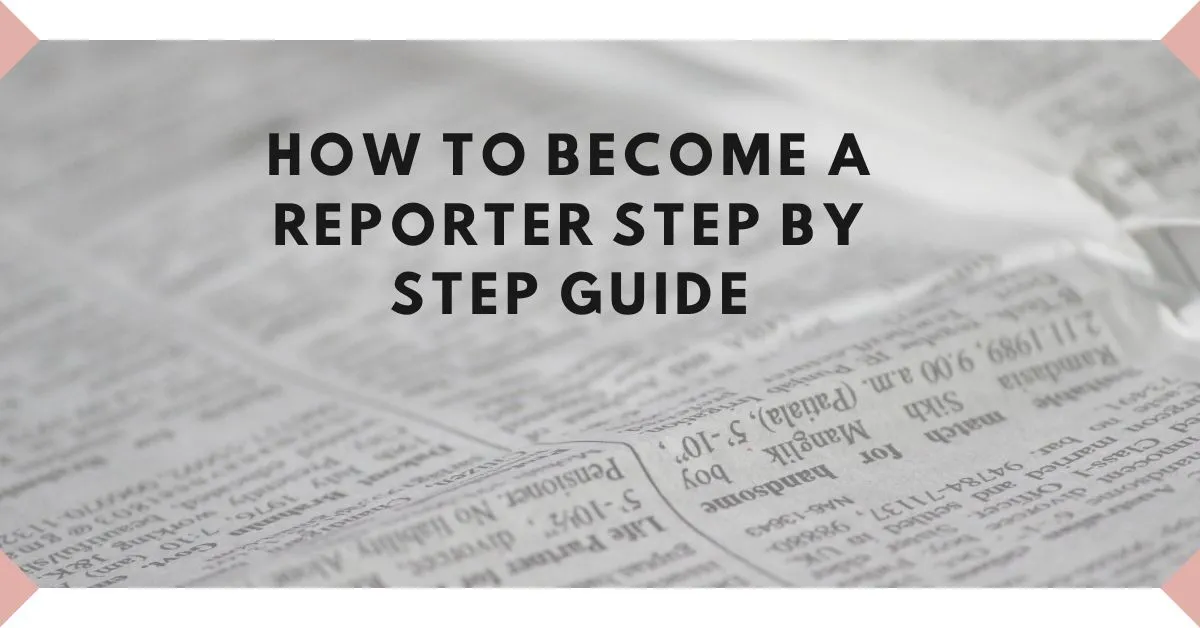Are you passionate about uncovering truth, telling stories, and keeping the public informed?
Becoming a reporter can be an incredibly rewarding career choice. This step-by-step guide will
walk you through the journey of becoming a skilled and successful reporter.
Step 1: Cultivate a Strong Educational Foundation
While a degree isn't always mandatory, a solid education can give you a competitive edge:
- Bachelor's Degree: Consider pursuing a bachelor's degree in journalism,
communications, or a related field. These programs provide a foundation in media ethics,
reporting techniques, and storytelling skills.
- Specialized Programs: Some universities offer specialized journalism
programs that focus on areas like investigative reporting, multimedia journalism, or
data-driven storytelling. These programs can provide you with valuable niche skills.
Step 2: Develop Core Skills
Reporters need a diverse skill set to excel in their roles:
- Writing: Practice writing regularly. Work on clarity, conciseness, and
adapting your writing style to different types of stories.
- Research: Learn how to gather reliable information from various sources and
fact-check thoroughly. Critical thinking is your ally here.
- Interviewing: Develop strong interpersonal skills. Practice asking
insightful questions and actively listening to your sources.
- Digital Literacy: Familiarize yourself with content management systems,
video editing software, and social media platforms. These tools are essential in today's
digital news landscape.
Step 3: Gain Practical Experience
Practical experience is invaluable in journalism:
- Internships: Apply for internships at newspapers, news websites, TV
stations, or radio stations. Real-world newsrooms provide hands-on experience and insights
into the daily life of a reporter.
- Freelancing: Start freelancing for local publications or online platforms.
Freelancing allows you to build a portfolio and gain exposure across different topics.
Step 4: Networking
Building connections is vital for career growth:
- Attend Events: Participate in journalism conferences, workshops, and media
events. Networking can open doors to job opportunities and collaborations.
- Online Presence: Build a professional presence on social media platforms
like Twitter and LinkedIn. Engage with other journalists, share your work, and stay updated
on industry trends.
Step 5: Choose a Reporting Niche
Consider specializing in a particular field:
- Passion and Expertise: Choose a niche that aligns with your interests and
strengths. Becoming an expert in a specific area can set you apart.
- Varied Coverage: While specializing, remember to diversify your coverage
within that niche to keep your reporting well-rounded.
Step 6: Pursue Further Education (Optional)
If you want to enhance your skills and knowledge:
Master's Degree: Consider pursuing a master's degree in journalism or a related field. These
programs can offer advanced training and opportunities for specialization.
Step 7: Embrace New Storytelling Trends
Stay current in the ever-evolving journalism landscape:
1- Digital Storytelling: Explore new formats like podcasts, video journalism, and interactive
graphics to engage modern audiences.
Step 8: Uphold Ethics and Integrity
Maintain the highest standards:
- Accuracy: Fact-check your stories rigorously and attribute sources accurately.
- Transparency: Disclose any potential conflicts of interest and biases.
Conclusion
Becoming a reporter is a dynamic journey that requires dedication, adaptability, and continuous
learning. By following this step-by-step guide, you can embark on a fulfilling career that
empowers you to inform, educate, and inspire through the power of storytelling.


